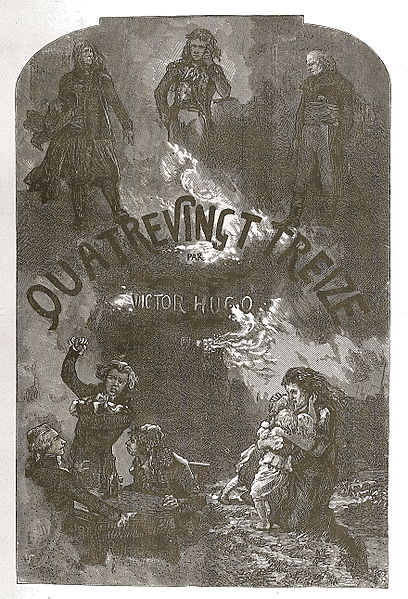I have long expressed my interest in the French Revolution. Of the many books I read on the subject, one really stands out and has led me to think about what it actually meant. This book was Quatre-Vingt-Treize (Ninety Three) by Victor Hugo - the author of the more famous "Les Misérables".
 The 93 we're talking about here is, of course 1793.
The 93 we're talking about here is, of course 1793.
A quick trip back in time, the Revolution is in full swing. In Paris, the glorious years have given way to the Terror. But our story is not set there. Instead the action takes place in Brittany, in western France. Rather than the tiny, dirty streets of Paris given over to the mob, we are in the country estates, between the fields and the ditches. Western France was torn by civil war as the locals sided with their traditional leaders against the Parisian authorities.
The book present use with two protagonist: The old regime represented by an aging Marquis de Lantenac. The Marquis is a stereotypical old-school conservative: he values tradition, spirituality and the ancient regime. The Marquis leads the insurrection against the Republic. Opposing him is his nephew, Gauvain who represents the modern ideas and the republican ideals. In their own way, both represent the ideal gentlemen of their side.
A third character, the former priest and Gauvain's preceptor represent the hard-line ideals of modernism that opposes the Ancien Régime and seeks its complete annihilation. Although throughout the book, it seems quite possible that Gauvain and his uncle could make up and live together, Cimourdain appears and prevents any peaceful resolution.
The book is awesome and complex. It is hard to hate both the republican and the royalist, as both side are fairly close. But the hard-lined Gauvain is just abject.
To this day, this book holds a strange fascination on me. The approach of "both sides of the same coin" has remained with me ever since and a lot of my writing draws from that philosophical duality.
JP

No comments:
Post a Comment